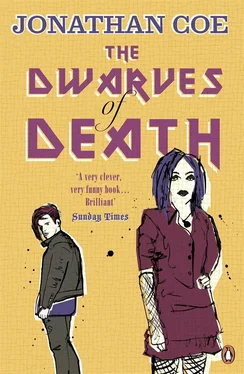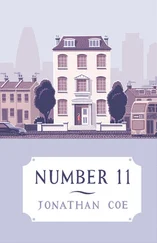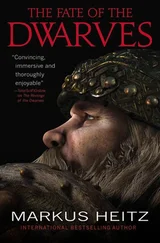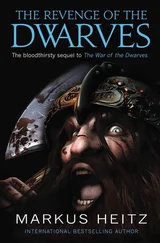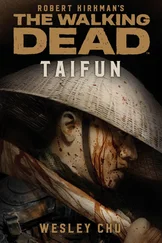The fact is that after a few minutes I lost all concentration on the music and became absorbed, instead, in the associations which it brought to mind. My fingers played on, quite independent, while I thought of all those long, tired walks home from the tube station; how hopeful I’d felt, at first; how dogged and blind I had been more recently. I couldn’t find it in me to be bitter, though. My mind went back more and more to those early evenings with Madeline: the fun of going to new places together and the easy flow of our conversation; the sight of her looking out for me at some meeting-point, the way her face would light up at the first glimpse of my approach. Meanwhile, on the keyboard, I must have been going through impossible key changes and dissonances, and I didn’t come back to my senses until a familiar phrase struck my ear and I realized that, for some reason or other, I was playing (albeit softly and out of time) the plangent theme from ‘Stranger in a Foreign Land’.
I stopped in mid-flight; and there was a deadly hush, all around me, as the customers — none of whom were talking, any more, but all looking in my direction — stared, puzzled and hostile, wondering who I was and why they were no longer listening to their regular pianist.
Hastily I got up, pushed through the tables and rejoined Tony in the corner of the room.
‘I’ve got to go,’ I said. ‘I’m sorry. I must be drunk or something.’
He nodded, and looked at me with worried eyes.
‘Will you be OK?’ he said. ‘Getting back, I mean? Do you want me to come with you?’
‘I’ll be OK.’
‘All right then.’ Just as I was leaving, he added: ‘Oh, and don’t forget about Sunday.’
‘Sunday?’
‘Not this one, the week after. You’re supposed to be looking after Ben for us. Yes?’
‘Oh, sure. Next Sunday. Fine.’
I staggered out, and the next thing I can remember, I was standing by the ticket barrier at Leicester Square station. I don’t know whether it was by mistake or half-formed design, but instead of getting a train to Embankment, I found myself travelling north. I got out at Euston and stood on the platform long after the other passengers had left it. I needed to talk to someone. There was someone I very badly wanted to see, and this was why I had taken the northbound train. Who was it? I couldn’t concentrate. What was I supposed to do next — turn around and go back home? Karla. I wanted to see Karla. What for? Was I going to tell her about this evening, about the argument, about Madeline? What time was it. Quarter past eleven. The White Goat would be closed by the time I got there. Closed, but not deserted. She would still be inside, cleaning the tables, washing the glasses, locking up. I crossed over to the City Branch platform and took a train to the Angel. I would knock on the door. She would come to the door, open it, see my face, let me in without a word. Without a word. She would be expecting me, almost. Without a word.
‘Can I help you in any way, sir?’
My fist was sore and I was looking into the face of a gigantic policeman. I was standing in a back street and everything was very quiet, now that I had stopped hammering on the door of the pub.
‘The pubs close at eleven o’clock, sir,’ said the policeman. This was an accusation, not a helpful statement of fact, and he wielded the word ‘sir’ like a blunt instrument.
‘I think I must have left something in there,’ I stammered. ‘My wallet.’
‘I see, sir. Well, you’ll have to wait until the morning to get it back.’
He was about forty, with a moustache, and didn’t seem too threatening. I murmured something by way of thanks and started to back away. ‘Have you got enough money to get home, sir?’ he asked.
‘Yes, it’s all right. I’ve got a card.’
‘Good night, sir.’
He watched me as I turned the corner. Five minutes later, when I came back round the corner, he was gone. The pub was dark, the door was bolted. I leant against it, my legs gave way, and I slid to the floor.
Probably I wasn’t asleep for very long. I woke up shivering, but it wasn’t cold that woke me. It was a sound. The street, as I have said, was quiet. I mean quiet, and not silent, because London is never silent. You don’t realize this at the time, while you’re living there: lying awake at four in the morning you might mistake what you are listening to for silence, but you’d be wrong. You only have to go somewhere else, out into the country, even to another town, to realize that in London there is always a hum, a rumble, a buried murmur of restless, indefinable activity. It was against this backdrop, this perpetually tense atmosphere of distant noise, that I could hear something distinct and surprising. It was a voice: a high, clear, woman’s voice, singing a tune so strong and lovely that it already sounded familar, even though I knew I had never heard it before. The voice was coming from above my head, from the sky, like an angel’s.
No it wasn’t. I looked up and saw, above the row of shops on the opposite side of the road, an open window. One of those shops had a sign which said ‘Videos — For Sale Or For Hire’. A memory clicked into place and I rose quickly to my feet: Karla. Of course. This tune was Scottish, you could tell that just by listening to it, and the words, although I couldn’t understand them, sounded as though they might have been Gaelic. Many months later, in fact, I discovered the words to this song, which is called ‘The Sailor’s Longing’. They included these lines:
Nuair chì mi eun a’falbh air sgiath,
Bu mhiann leam bhith ’na chuideachd:
Gu’n deanainn cùrs’ air tìr mo rùin,
Far bheil an sluagh ri fuireach.
Translating them into English would give you something like this:
When I see a bird taking to wing,
I long to fly off with it:
I’d set my course to the land I love,
The land my people dwell in.
I stood and listened to her voice for I don’t know how long. It seemed the most beautiful thing I had ever heard. The tune spoke of such certainty and fitness, the voice was so pure, that I forgot, in a moment, everything. I even forgot that I was drunk. It spoke to me, and what it told me was exactly what I had wanted to hear. And when it was over, leaving nothing but that strange busy stillness, I no longer wanted or needed to speak to Karla. Not then. Not now.
I had heard her sing.
you left your girlfriend on the platform
with this really ragged notion that you’d return
but she knows that when he goes
he really goes
MORRISSEY, London
‘I’d set my course to the land I love, The land my people dwell in.’ Well, I still wasn’t ready for that: I wasn’t going to let London defeat me, yet. But my thoughts did turn back towards home the next day, and I was reminded, with a clarity I hadn’t counted on, of some scenes from my past life which I had been doing my best to ignore. The reason for this was the arrival, sooner than I had expected, of a letter from Derek.
It wasn’t just a letter, in fact, but a parcel; and the first thing I found when I opened it was a record — a seven-inch single. The A-side was called ‘Violent Life’; the B-side was ‘Insomnia’. It was credited to a band called The Dwarves of Death.
A letter was folded up inside the picture sleeve; I took it out and started reading.
Dear Bill,
Nice to hear from you — at long last. What with nobody getting a peep out of you up here, and seeing as how you haven’t cropped up on Top of the Pops yet, rumours have been flying around the homestead that you must have fallen into the Thames and floated off to that great recording studio in the sky. But it turns out that you’re alive and well and living in Bohemian squalor. We’re all very relieved, I can tell you.
Читать дальше
